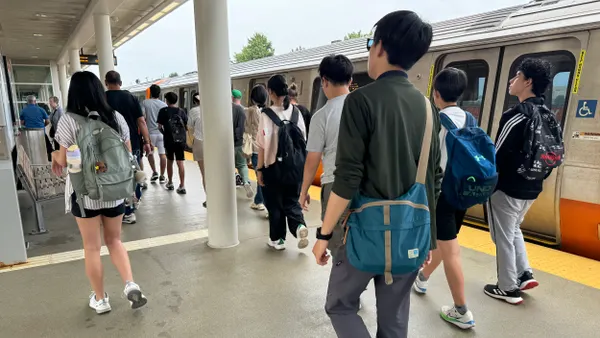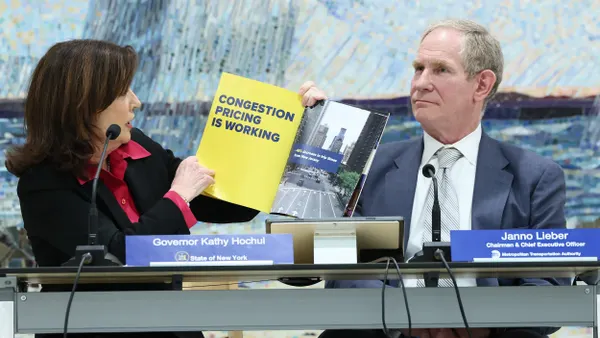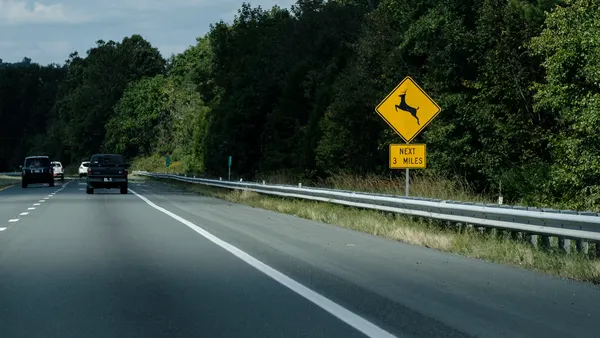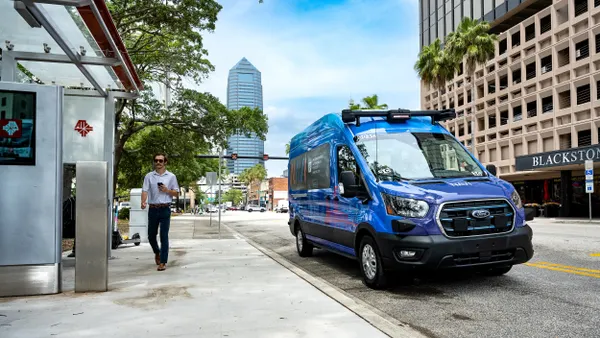Dive Brief:
- Micromobility company Spin is providing six nonprofits with access to a street data toolkit for the organizations to contribute solutions to city infrastructure and safety changes. The chosen nonprofits for the Mobility Data for Safer Streets (MDSS) initiative are BikeWalkNC, Sustain Charlotte, Bike Cleveland, Walk Bike Nashville, Bike Utah (in partnership with Bike Walk Provo) and Walk Denver.
- The nonprofits will receive access to data platforms from StreetLight Data, Populus, Strava Metro SaaS and Gehl Institute's Public Space Public Life digital survey. They will also receive a bike-pedestrian counter, a speed gun to track vehicle speeds and a time-lapse camera to track streetscape changes over time.
- The groups will have toolkit access for one year. University of California, Davis (UC-Davis) will perform an independent evaluation of the program at its conclusion to gather insights on what was useful and what could be improved. Spin intends to publish the evaluation findings.
Dive Insight:
Mobility companies often already share data with cities, to varying degrees, but nonprofits usually are left out. Nonprofits often do not have the financial strength to subscribe to private mobility data aggregation services, which can be pricey. The expense comes in no small part because of the security and privacy measures companies employ when ingesting and analyzing data.
This week, competitor Uber said it would start making its Jump bike and scooter volume data publicly available through a free data tool to inform cities' decisions about where infrastructure opportunities exist. But the situation is different with Spin because it relies on Populus for its data services, Beaudry Kock, head of policy initiatives at Spin, told Smart Cities Dive.
"[Populus] works with scooter data from multiple operators. They already have a platform... They deal with the privacy issues, they aggregate the data and make sure that what you're seeing is an aggregate picture and not individual trips," he said. "That's infrastructure we just don't have... We're not going to just hand out trip data to anyone."
Spin's program intends to enable nonprofits to contribute solutions that improve cities' transportation infrastructure and increase safety. The belief is that by receiving greater access to street data, they might be in a stronger position to devise, petition and work with governments on infrastructure changes. The initiative aims to offer participants data beyond just scooter trips, which is why so many different data aggregators are participating.
"Having the fullest suite of data is what makes this project really interesting," Kock said. "All the work we do in our streets program is trying different strategies and trying to make change on the ground and make streets safer. This is another one of those efforts coming at it from a different angle."
Nonprofits applied to participate in the program last fall. Each proposed a mobility infrastructure project that would benefit from using the toolkit. The winners' ideas range from general concepts such as assessing the need for street improvements in line with Vision Zero goals to more specific bike lane network build-outs. Those that were chosen "clearly demonstrated the capacity to think with data. They have a clear sense of the projects they want to work on... We think there's a good chance they'll be able to make use of this data and actually make a difference on the ground," Kock said.
The nonprofits are not required to submit anything at the end of their project term. However, Spin hopes they will participate in the UC-Davis study to provide insight that will improve future program iterations. The intention is to expand the program in the future.
Even if the nonprofits fall short of reaching their goals and driving infrastructure change, that's also valuable input for organizers. There's a belief within the industry that simply giving cities access to data will prompt them to make infrastructure improvements, but that's not always the case and nonprofits might be able to play a greater role, Kock said. This pilot project could prove or disprove numerous aspects of that hypothesis.
"Data has an important role to play. But if [program participants] struggle with it — if the data wasn't received well or it's not the impact we expected — that's also insight. That would tell us this is not just about data, there are other things we need to do to get cities to make this change on the ground," he said.










